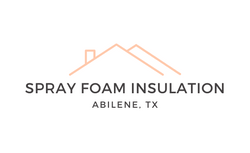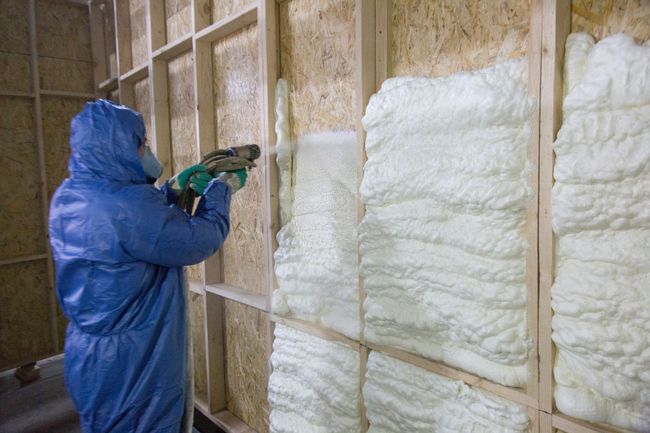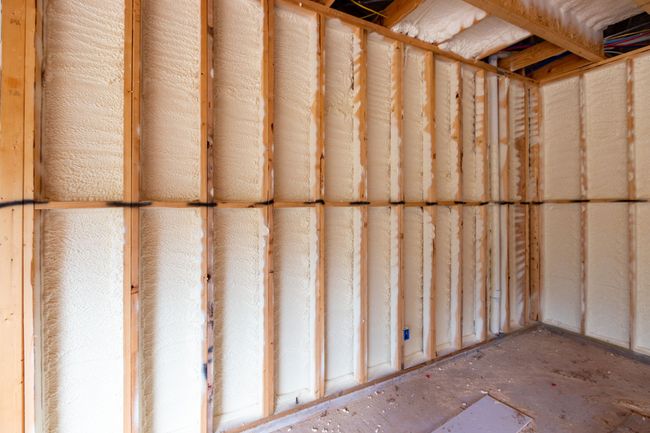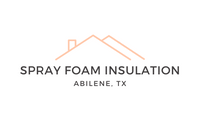Spray Foam Insulation Abilene TX
Professional Insulation Contractors of Abilene TX
At Spray Foam Insulation of Abilene TX, we offer professional installation of residential and commercial spray foam. We serve Abilene, TX as well as surrounding areas of The Big Country. Rest assured, we are familiar with local building codes. Learn more about us here!
Spray foam insulation is growing in popularity due to its high performance and energy efficiency. We offer premium, first-rate, and affordable spray foam installation services for your home or business. We will either install new spray foam insulation or replace your existing insulation to improve energy efficiency of your space.
Spray foam insulation is created with the purpose of minimizing the undesired transfer of heat, as well as safeguarding your home or space against moisture and preventing the growth of mold in your walls and attic. Do you have questions about the benefits of spray foam and whether spray foam insulation is right for your space? Read on or give us call today at 325-267-6009! We would be happy to answer your questions and help you get started!
What Is Spray Foam Insulation?
Spray foam insulation is a spray polyurethane foam made of two composite materials, polyol resin and liquid isocyanate. These materials are mixed into an expanding foam on-site and sprayed into wall cavities, crawl spaces, and other areas that require insulation. The spray foam expands on its own as it hardens into place. It is used to insulate homes and buildings, and it is becoming increasingly popular due to its versatility, performance, and efficiency. Spray foam insulation can be used in a variety of applications including walls, ceilings, floors, and even roofs. It can also be used in new construction or in existing buildings where there are open cavities.
If you are looking for an insulation option that will provide excellent heat transfer resistance and improve your building or home's energy efficiency, consider spray foam insulation. Spray Foam Insulation of Abilene TX is a reputable company that provides high quality spray foam insulation services in Abilene, TX and surrounding areas. Contact us today to get started with a free estimate at zero risk to you!
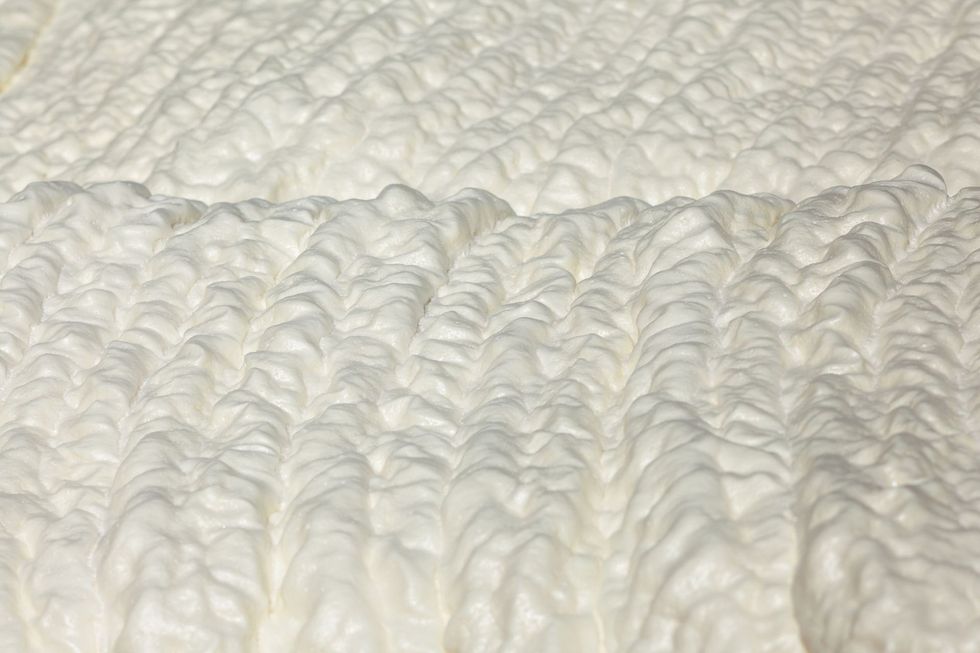
How Does Spray Foam Insulation Work?
Spray foam insulation is a high-performance insulation material that is becoming increasingly popular in Abilene, TX. It is a self-expanding insulation that is made by mixing two chemicals, polyol resin, and isocyanate. When these two chemicals are mixed, they react and expand to form a foam-like substance that can be sprayed onto surfaces before hardening.
As opposed to traditional methods of adding insulation where fiberglass batts or cellulose were blown-in to spaces, the process of applying spray foam insulation involves spraying the mixture onto the surface to be insulated. As the spray foam insulation expands and hardens, it creates little air bubbles in the material, filling gaps and sealing the surface, creating an airtight seal. This seal helps to prevent air leaks and heat transfer as well as reduce energy costs.
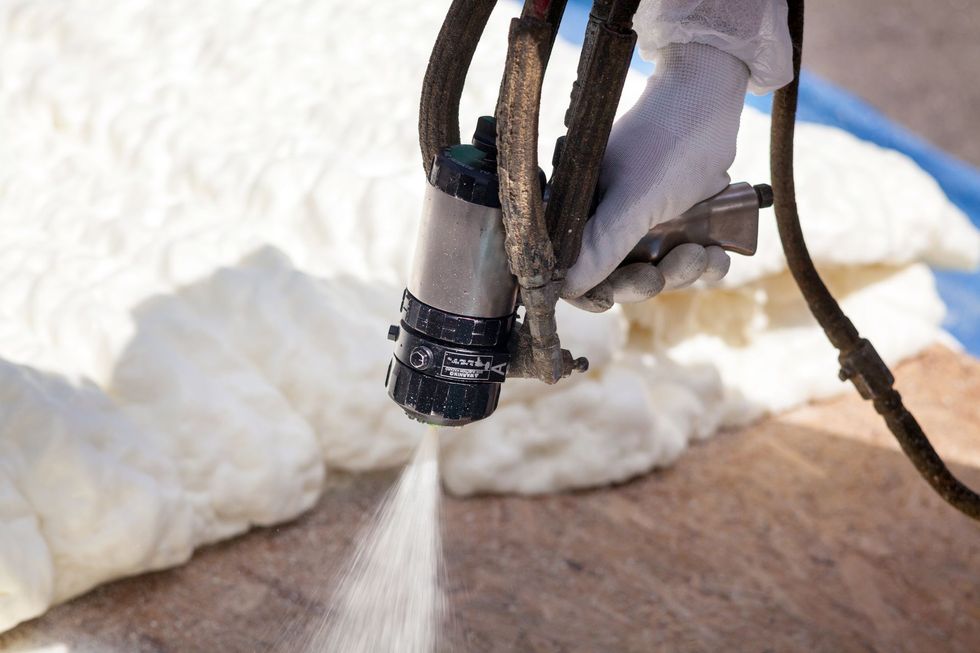
What Is R-value and Why Does It Matter?
R-value is a measure of how much resistance the insulation has to heat flow. The higher the R-value, the better a material is at insulating a space. Spray foam insulation has a higher R-value than other types of insulation, such as cellulose and fiberglass insulation. This is because it creates an airtight seal that prevents air from escaping or entering the building. Spray foam insulation virtually eliminates air infiltration. This means that the building stays warmer in the winter and cooler in the summer, which can lead to significant energy savings.
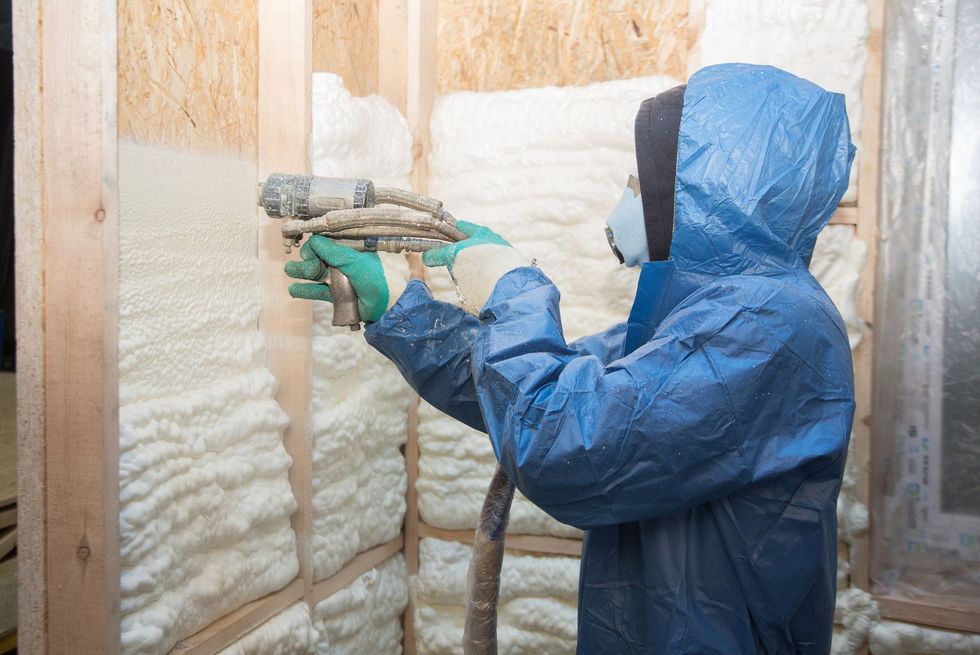
Why Should I Choose Spray Foam Insulation?
Benefits of Spray Foam Insulation
Spray foam insulation is a type of insulation that is becoming increasingly popular in homes and buildings. It is a unique insulation material that is sprayed onto walls, ceilings, and floors to create an airtight seal that prevents air gaps and air leaks. This type of insulation is known for its excellent air sealing properties, which make it a great choice for those looking to improve their home's energy efficiency, reduce heating and cooling costs, improve air quality, and create a more comfortable living space.
One of the main advantages of spray foam insulation is its ability to create an airtight seal. This means that it can seal all the cracks, gaps, and holes in your walls, ceilings, and floors, preventing air from leaking in or out of your home. An airtight seal is important because it helps to keep your home's temperature consistent, which can lead to significant energy savings over time.
Another benefit of spray foam insulation is that it acts as a vapor barrier and moisture barrier. This means that it can absorb moisture and prevent it from entering your home, which can lead to mold remediation problems. Mold can be a serious health hazard, and it can also cause damage to your home's structure. By preventing moisture from entering your home, spray foam insulation can help to keep your home healthy and safe.
Spray foam insulation also has a high R-value, which is a means it has superior thermal resistance. This means that it can help to keep your home warm in the winter and cool in the summer, which can lead to significant energy savings. By reducing your home's heating and cooling costs, spray foam insulation can pay for itself over time.
Overall, spray foam insulation is an excellent choice for those looking to improve their home's energy usage, reduce heating and cooling costs, and create a more comfortable living space. Its ability to create an airtight seal, act as a vapor barrier and moisture barrier, and provide excellent thermal resistance make it a smart investment for any homeowner or building owner. Installing spray foam insulation is also perfect for commercial buildings and pole barns.
If you're interested in learning more about our spray foam insulation services and saving on your energy bills, keep reading or contact Spray Foam Insulation of Abilene TX today!
Spray Foam Insulation Vs. Blown-In Fiberglass and Cellulose Insulation
Fiberglass insulation and cellulose insulation are both traditional blown-in types. Fiberglass batts are made primarily of glass and are installed using a blowing machine. Fiberglass insulation has an R-value of around 3.2 to 4.2. Cellulose is made of recycled newspaper or corrugated cardboard made fire retardant. Cellulose has an R-value of around 3.2 to 3.6.
Spray foams are different in that they use a mixture of polyol resin and isocyanate to create a sprayable foam that hardens after application. Spray foam has a higher R-value and eliminates air infiltration, meaning it is a better insulator against heat and is tightly sealed. In some cases, spray foam insulation can also be resistant to water and moisture, making it flood-proof and quick-drying. These properties do not apply to traditional insulation types, making spray foam insulation generally superior.
Check out our spray foam insulation services here!
Types of Spray Foam Insulation
There are two types of spray foam insulation: open-cell and closed-cell. The classification of a spray foam as open or closed cell is based on the structure of the small bubbles, or cells, that comprise the foam.
Open Cell Spray Foam Insulation
Open cell foam is characterized by cells that are not fully encapsulated but left open, resulting in a softer and more flexible material. Open cell foam has an R-value of 3.5 to 3.8.
Closed Cell Spray Foam Insulation
Closed cell spray foam features cells that are tightly pressed together, creating a barrier that prevents air and moisture from penetrating the foam. As a result, closed cell foam is a more rigid and stable material. Closed cell spray foam has an R-value of 6.0 to 7.0.
Open Cell vs. Closed Cell Foam Insulation
When it comes to spray foam insulation, there are two main types to consider: open cell and closed cell. If you're in Abilene TX and looking to insulate your home or business, understanding the differences between these two types of spray foam insulation can help you make an informed decision.
- Open cell spray foam insulation is a type of insulation that is made up of tiny cells that are not completely closed. This allows air to fill the spaces within the material, making it a good choice for insulating walls and ceilings. Open cell insulation is ideal for filling gaps and cracks in walls, as it expands to fill the space and create an airtight seal.
- Closed cell spray foam insulation, on the other hand, is made up of cells that are completely closed. This means that the material is much denser than open cell foam insulation. Closed cell foam insulation is ideal for areas that require a high level of structural integrity, such as roofs and foundations.
- Open-cell spray foam insulation has a lower R-value (3.5 per inch) than closed-cell spray foam insulation (6.0 - 7.0 per inch), but it is less expensive. Closed-cell spray foam insulation has a higher R-value and is more expensive, but it provides better insulation and can help to strengthen the structure of the building.
- Closed cell spray foam insulation is moisture resistant and acts as a vapor barrier due to its tightly packed and closed off cells.
- Open-cell insulation expands around 100 times its volume while closed-cell insulation expands around 33 times its volume. This makes open-cell spray foam insulation more effective at filling gaps and crevices.
How to Choose: Open-Cell Vs. Closed-Cell Spray Foam Insulation
When it comes to choosing between open cell and closed cell spray foam insulation, it's important to consider the specific needs of your home or business.
Benefits of Open-Cell Foam:
- Higher expansion rate means the foam fills gaps, cracks, and crevices more effectively.
- Open-cell spray foam is hydrophobic, meaning it will not retain water from potential leaks. This prevents mold build-up.
- Open-cell spray foam dampens soundwaves effectively due to its structure and makeup, resulting in a quieter space.
- Open-cell spray foam is more affordable, which will help you save money in your budget.
Benefits of Closed-Cell Foam:
- Closed-cell spray foam has a higher R-value and lower expansion rate than open-cell spray foam. This means that closed-cell foam can be more efficient at keeping out heat while using up a smaller space. Closed-cell foams are well suited for tight wall cavities.
- Closed-cell spray foam roof or foundation, closed cell foam insulation may be a better option due to its tolerance of extreme temperatures and high strength. This type of spray foam can increase the structural integrity of commercial buildings and pole barns.
- Closed-cell spray foam is water and moisture resistant due to its density. This means that it is flood resistant and rejects bulk water without deterioration. Closed-cell insulation is well suited for exterior walls.
- Closed-cell spray foam is more expensive but is typically more durable and longer-lasting than open-cell spray foam.
Overall, both types of spray foam insulation offer a number of benefits, including increased energy savings and lowered heating and cooling bills. By choosing the right type of insulation for your needs, you can ensure that your home or business is well-insulated and protected from the elements. Check out the spray foam insulation services we offer!
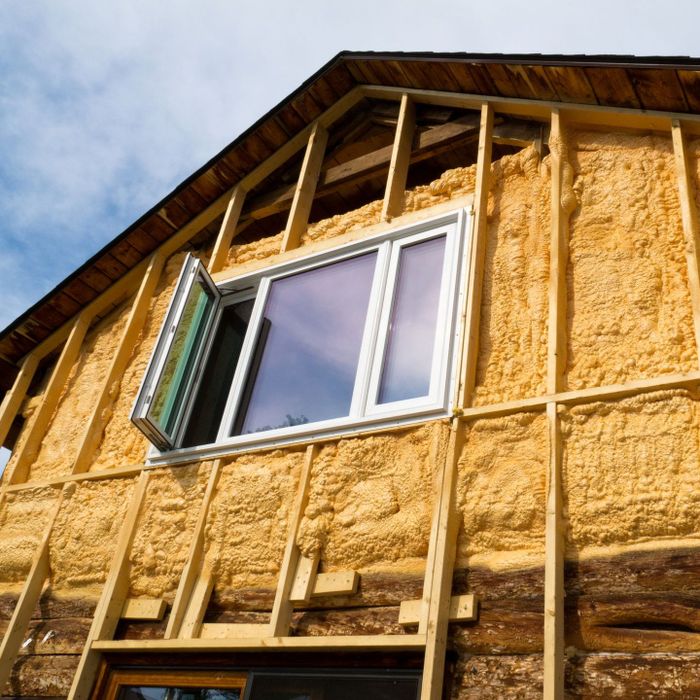
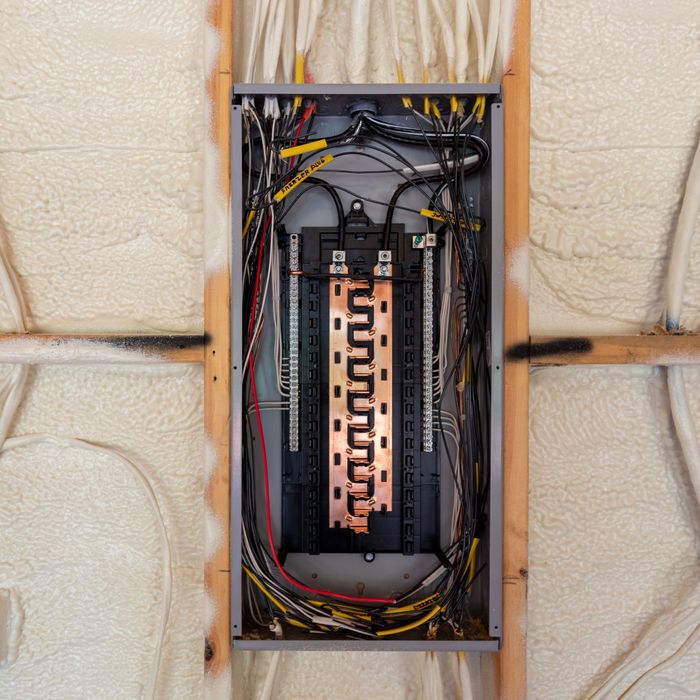
Where Should I Use Spray Foam Insulation?
- Spray foam insulation can be used in exterior walls for thermal resistance, moisture resistance, and structural strengthening.
- Spray foam can be used in attic insulation.
- Spray foam insulation can be used around the edges of window frames to fill gaps and reduce energy costs.
- Spray foam insulation can be used in open wall cavities, corners, crevices, and crawlspaces.
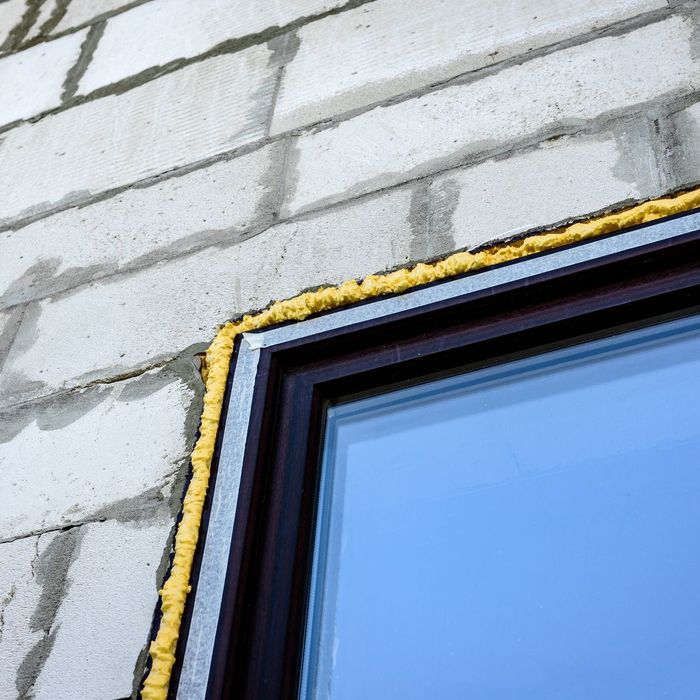
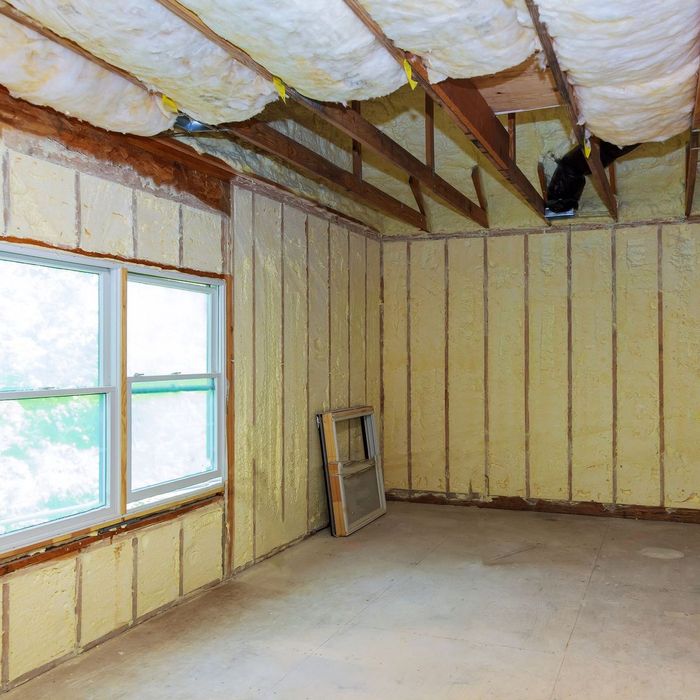
Where Should I Avoid Using Spray Foam Insulation?
- Closed Cavity Spaces - Caution should be taken when using spray foam insulation in closed wall cavities. The expansion of the foam can result in damage to spaces enclosed too tightly.
- Note: Unless using a professional installation service, it is recommended to use open-cell spray foam insulation in closed cavity walls due to its increased ability to fill all spaces and voids. Any voids in the space will allow more heat to pass through and reduce the effectiveness of the insulation.
- Near Electrical Fixtures or Recessed Lighting Installations - Spray foam insulation can push against or jam up electrical fixtures such as electrical boxes or outlets, introducing flammable materials near electrical components. If spray foam gets near recessed lighting, it can trap heat. Both of these cases result in fire hazards.
- High Expansion Foams Near Door or Window Frames - High expansion foams such as open-cell spray foam insulation are not suitable for small spaces such as the areas around door or window frames. If spray foam expands too much, it can damage the door or window frame. Since closed-cell spray foam insulation expands 3 times less than open-cell, it is the recommended option.
- Dedicated Waterproofing - Spray foam should not be used as a dedicated waterproofing material. While closed-cell spray foam is resistant to water and moisture, it is not completely waterproof. Spray foam may allow some water to pass through in a leak situation, resulting in damage to other structures. Abnormal prolonged exposure to water can cause spray foam to deteriorate.
Cost of Spray Foam Insulation
Are you wondering how much does spray foam insulation cost in Abilene, TX? We have the answer.
Spray foam insulation cost can vary depending on several factors. One of the primary factors is the type of spray foam insulation used. There are two types of spray foam insulation: open-cell and closed-cell. Open-cell spray foam is less expensive than closed-cell spray foam. Another associated factor that affects the cost of spray foam insulation is the R-value. R-value is a measure of the insulation's ability to resist heat flow. High R-value insulation is more expensive than lower R-value insulation.
The typical cost range for low R-value open-cell spray foam insulation is between $0.55 and $0.70 per square foot. The typical cost range for high R-value closed-cell spray foam insulation is $3.00 and $4.75 per square foot. These prices vary by insulation thickness and includes both materials and labor. Typical insulation thickness ranges from 1.5" to 3.5". The cost can also vary depending on the size of the project and the location of the home.
When calculating the cost of spray foam insulation, it's important to consider the square footage of the area being insulated. The larger the area, the more expensive the insulation will be. Homeowners should consider the benefits of spray foam insulation, including improved energy efficiency and lower utility bills, when deciding if the cost is worth it.
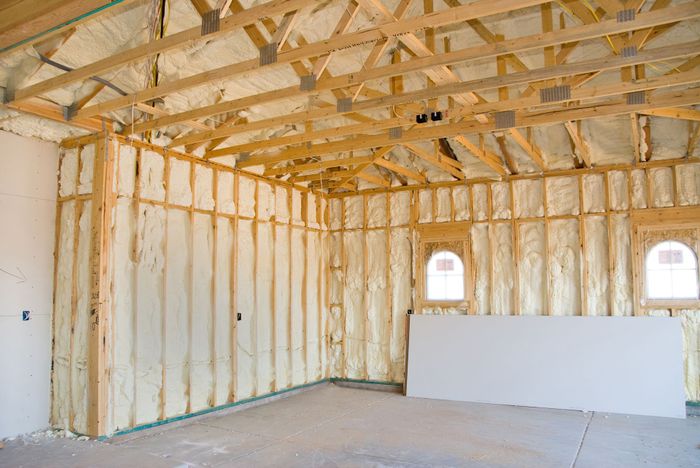
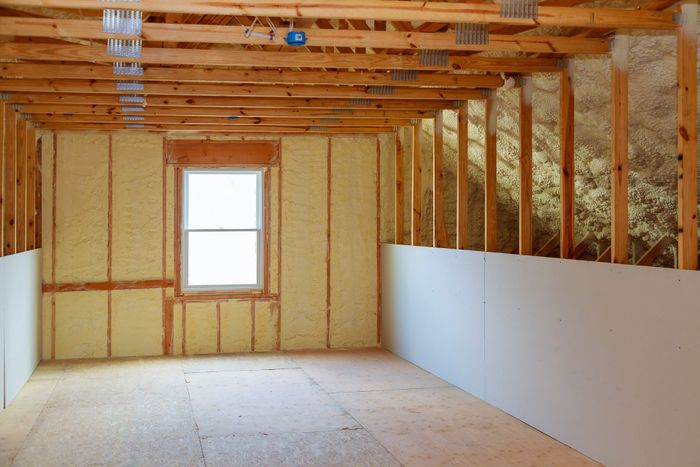
Why You Should Hire a Professional When Installing Spray Foam Insulation
We always recommend hiring a professional to install spray foam insulation. Even though DIY kits are available, DIY spray foam insulation is more difficult than it sounds. There are a few factors why spray foam insulation is challenging:
- Spray foam installation involves polyol resin and isocyanate that must be mixed at the proper ratio. If the mixture does not contain the proper ratio, the insulation can be inconsistent and it will emit a foul odor.
- Knowledge and skill is required to know how much spray foam should be installed in various areas. For example, a closed cavity requires far less spray foam than an open cavity. The same applies to areas such as door frames and crevices. It is important not to over spray tight areas, as the expansion of the foam can cause damage.
- Spray foam can emit harmful fumes during installation. Therefore, proper protection must be worn at all times.
- Professionals are experts at determining where to use open-cell vs closed-cell foam. Even though many websites aim to give you an idea how to choose between open-cell and closed-cell foam, it does not make you an expert. It is very easy to make a mistake in judgement that could lead to damage and poor insulation efficiency later on.
- Professionally installed spray foam will likely be more efficient that DIY spray foam. Professional experts use their skill to ensure the layer of foam is even, gapless, and at the right thickness to ensure proper blocking of heat.
At Spray Foam Insulation Abilene TX, we install top quality spray foam insulation for homes, commercial spaces, and any other buildings that can be made more energy efficient. Are you thinking about new insulation for your home or building? Call us today at 325-267-6009 to get started with a free estimate at zero risk to you! We are happy to assist you and answer any questions you may have!
Home Page Bottom Form
Thank you for contacting us. We will get back to you as soon as possible.
Please try again later
Location
Call
All Rights Reserved | Spray Foam Insulation Abilene TX | Powered by AZL Digital
